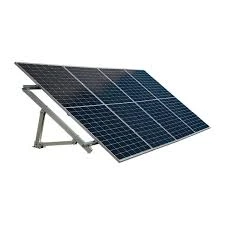efficiency of solar panels in winter
Efficiency of Solar Panels in Winter
As winter sets in, many people may wonder about the efficiency of solar panels during this colder, often cloudier season. The common perception is that solar panels are less effective in winter; however, this isn’t entirely accurate. Understanding the factors that influence solar panel efficiency in winter can provide insights into how these renewable energy systems perform year-round.
Firstly, it’s essential to note that solar panels rely on sunlight, not temperature, to generate electricity. While colder temperatures can lead to increased efficiency in photovoltaic cells, cloudy days do reduce the amount of sunlight that reaches the panels. In winter, the sun's angle is lower in the sky, leading to shorter days and potentially less solar exposure. Despite this, solar panels can still perform effectively, especially in regions with clear or sunny winter days.
One advantage of winter solar power generation is the snow effect. When solar panels are covered in snow, their efficiency may decline temporarily. However, as sunlight penetrates the snow, it can cause the panels to heat up, which may help melt the snow and clear the surface, allowing for better sunlight exposure. Moreover, the reflective quality of snow can enhance the amount of sunlight reaching the panels, further increasing their output when the snow is melting.
efficiency of solar panels in winter

Another important consideration is the design and orientation of solar panels. Properly installed panels, angled to maximize sun exposure during winter months, can maintain efficiency levels. Homeowners with solar systems should regularly clear debris, snow, or ice from their panels to ensure they can capture as much sunlight as possible.
In terms of long-term performance, many solar systems come with warranties and performance guarantees that extend for 20 to 25 years or more. This means that even if winter performance is not optimal, the cumulative energy generation throughout the year will still be substantial.
Lastly, innovations in solar technology continue to improve winter performance. Newer solar panel models are designed to capture a broader spectrum of light and perform better in various weather conditions, including cold and cloudy settings.
In conclusion, while winter poses unique challenges for solar panel efficiency, these systems continue to generate electricity effectively when properly maintained and optimized. Understanding the dynamics of solar energy collection in winter is essential for maximizing the benefits of solar technology year-round. As the world shifts towards more sustainable energy solutions, harnessing the potential of solar panels in every season remains a critical focus for homeowners and energy providers alike.
-
String Solar Inverter: The High-Efficiency Solution for Smart Solar EnergyNewsJul.14,2025
-
Revolutionizing Rooftop Energy with the Power of the Micro Solar InverterNewsJul.14,2025
-
Power Independence with Smart Off Grid Solar Inverter SolutionsNewsJul.14,2025
-
On Grid Solar Inverter: Powering the Future with Smart Grid IntegrationNewsJul.14,2025
-
Monocrystalline Solar Panels: High-Efficiency Power for the Future of Clean EnergyNewsJul.14,2025
-
Bifacial Solar Panel: A Smarter Investment for Next-Generation Energy SystemsNewsJul.14,2025







